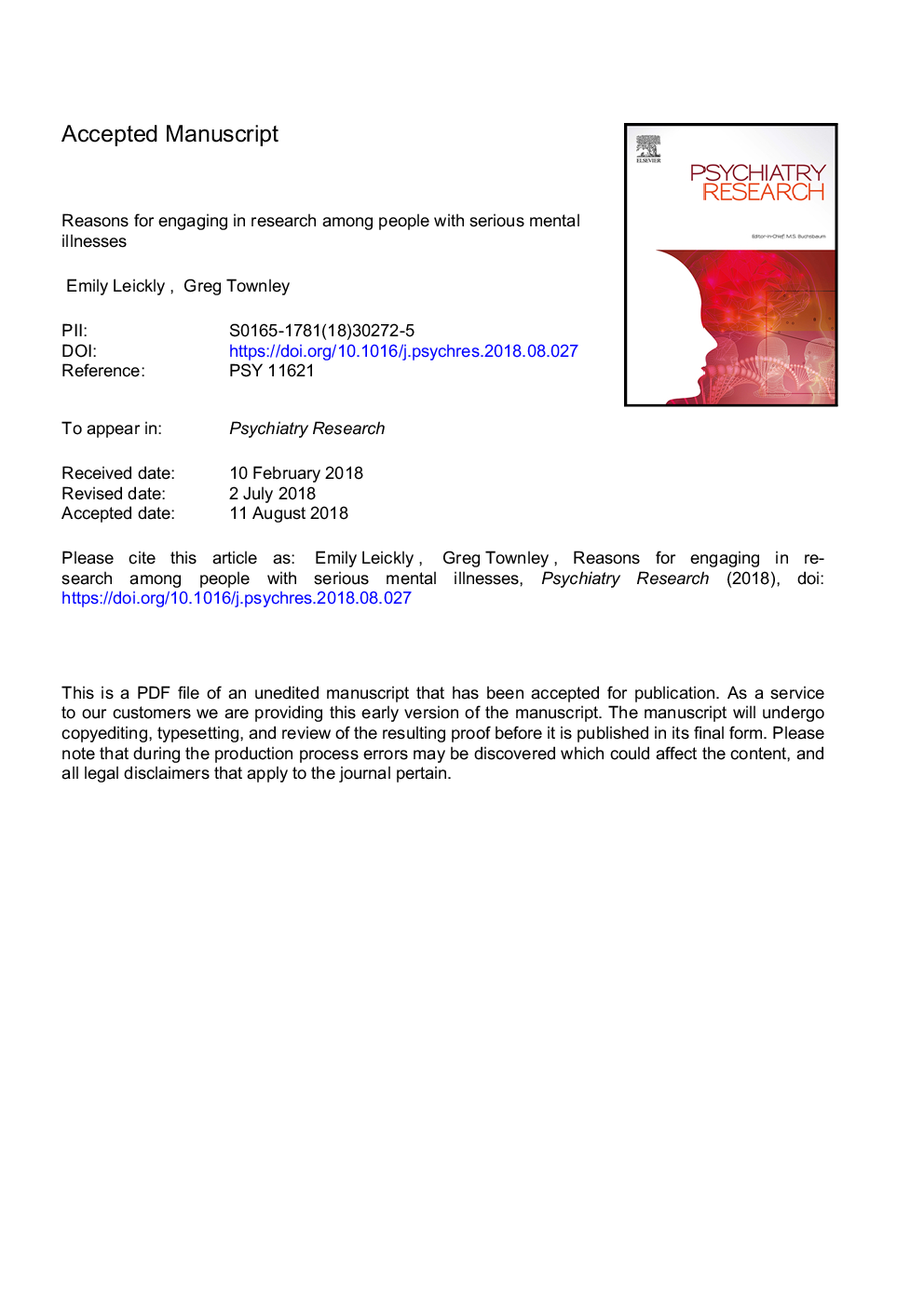| Article ID | Journal | Published Year | Pages | File Type |
|---|---|---|---|---|
| 8947232 | Psychiatry Research | 2018 | 16 Pages |
Abstract
People generally participate in research for three primary reasons: financial, altruistic/social, and personal/psychological. While we would expect individuals with serious mental illness (SMI) to share these reasons, this assumption has not been investigated. Ninety-two adults with SMI living in supportive housing were interviewed about their reasons for participating in a study examining their housing, well-being, and community experiences. Associations between participant characteristics and reasons for research participation were explored. Primary reasons for participation included “contributing to science/research” (37%, nâ¯=â¯34), “money” (33%, nâ¯=â¯30), “improving housing” (22%, nâ¯=â¯20), “having someone to talk to (2%, nâ¯=â¯2) and other (6%, nâ¯=â¯6). Secondary reasons were “money” (38%, nâ¯=â¯31), “contributing to science/research” (24%, nâ¯=â¯20), “improving housing” (24%, nâ¯=â¯20), “having someone to talk to” (2%, nâ¯=â¯2) and other (11%, nâ¯=â¯9). Additionally, 29% (nâ¯=â¯27) reported making housing or well-being changes since participating. Individual characteristics were not significantly associated with reasons for research participation. Participants' reasons for research participation mirrored the general population, with “improving housing” being a unique motivating factor. Participation in survey research could benefit people with SMI by prompting community engagement and consideration of housing issues.
Keywords
Related Topics
Life Sciences
Neuroscience
Biological Psychiatry
Authors
Emily Leickly, Greg Townley,
